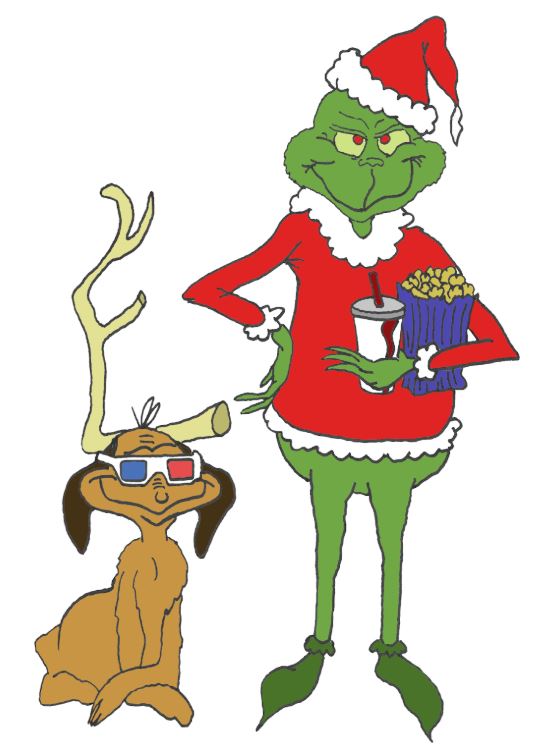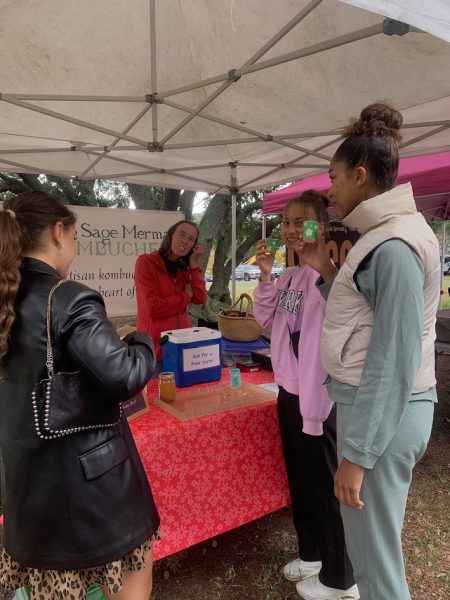Get ready for small hearts to grow three sizes big as Dr. Seuss’ “The Grinch” reminds its audience what this holiday season truly is about. That is, Christmas does not lie in external things, but is a special feeling that lives in one’s heart. Those who grew up reading the book, seeing the 1966 television special, or even the Ron Howard live-action film in 2000 will feel nostalgic from this new vibrant and animated version.
Narrated by Pharrell Williams, this heartwarming story of friendship, forgiveness, and the perils of consumerism take place in the typical Seussian fashion of irregular rhythm and rhyme. The animation is beautiful, with the intricate and colorful designs that fill the screen. For those who grew up seeing the version starring Jim Carrey, one cannot help but contrast the two as both attempt to bring the classic storybook to the screen. While both have the same main story line, portrayals of the Grinch and Cindy Lou Who differ quite a bit. And while the older version of the Grinch is played for laughs, this new one focuses on the character’s feeling of being alone and helpless. This feeling is punctuated by a scene where he plays a performance of the Eric Carmen song “All by Myself” on his piano.
The Grinch, voiced by Benedict Cumberbatch, is frankly more endearing and sympathetic. First, he and his dog Max have a relationship where they respect and are affectionate towards each other. In one scene, Max and the reindeer Fred wanted to snuggle next to the Grinch. After the two showing him “puppy eyes,” he eventually relents. During the scene before the Grinch’s Christmas heist, he asks his dog to be the “main reindeer” and pull the sled, which Max does with pride. Notably, the he also eats fairly clean food, as opposed to Jim Carrey’s Grinch who eats literal garbage and borderline mistreats his dog.
One of the things that stood out in the 2000 version is the relationship between Cindy Lou Who, played by Taylor Momsen, and the titular character. Their friendship was not as noticeable in the new one. Instead, its emphasis is on Cindy Lou’s selfless wish for her widowed mother Donna Lou, voiced by Rashida Jones. The wish is for her mother’s workload to be alleviated, as she is a nurse who works day and night. This is a departure from Ron Howard’s version where the mother was just a placeholder who tried to keep up with the Joneses.
The theme of friendship is seen throughout the film, as Cindy Lou opens up to her best friend and eventually team up with others to capture the creature who they think is Santa. Even the friendship between Fred the reindeer, Max and the Grinch takes the spotlight as they loyally help each other out. There are many tear-inducing moments like these peppered throughout the movie. In another scene, Fred sees his family as he pulls the sleigh. The Grinch, knowing how it feels to want a familial bond, allows him to go.
It turns out that the reason for his hatred toward Christmas stems from his orphan backstory where no one celebrated the holiday with him as he watched other kids with families. His disdain toward the Whos and Christmas then seem more justified than the older version who simply hated all of the townspeople due to some shaving disaster he had as a kid, which caused him to encounter bullies.
The Grinch made over $67 million during its opening weekend according to Box Office Mojo, is a more worthy Christmas movie to see than its predecessor. Perhaps the old version simply provides nostalgia, but it certainly does not age well. Its scene of the Grinch hanging a mistletoe above his behind as he berates the crowd is an ample metaphor of what the movie is to audiences.
Both versions, however, have the same sentiments about presents. To the Grinch, he sees the Whos as those mainly concerned with gifts, which mirrors the culture of greed and consumeristic nature of the country. Confident that his plan would work, he then tries to steal their joy by taking their presents. Of course, to his surprise, the Whos realize that Christmas is something that is in their hearts as they continue to sing their carols. Perhaps that is the message we should all come out with. Instead of focusing on Christmas shopping, let’s remember that this season is a time to be present with people we love.
Nica Nakagomi
asnakagomi@vwu.edu

